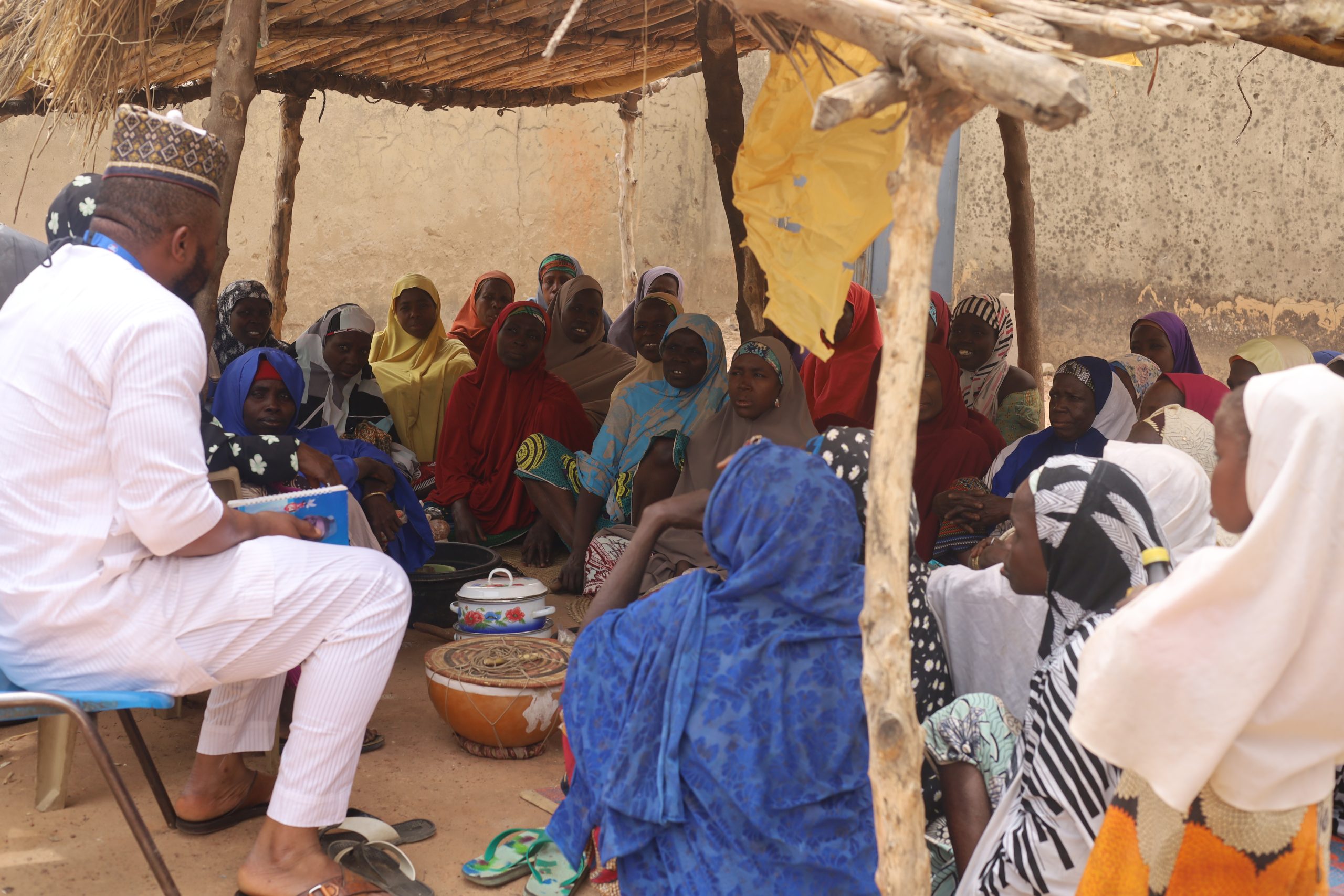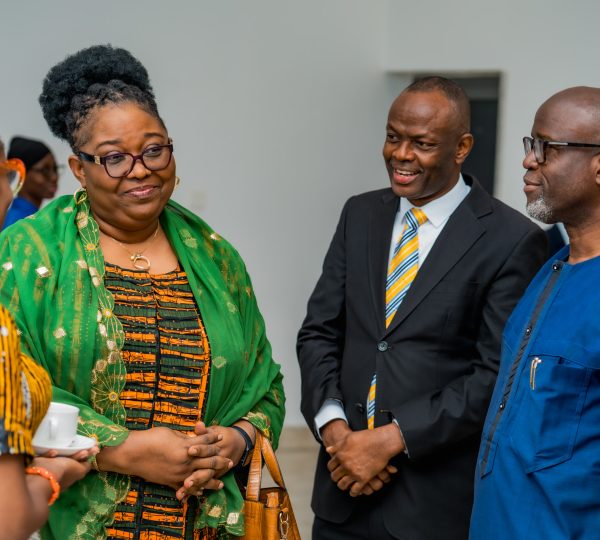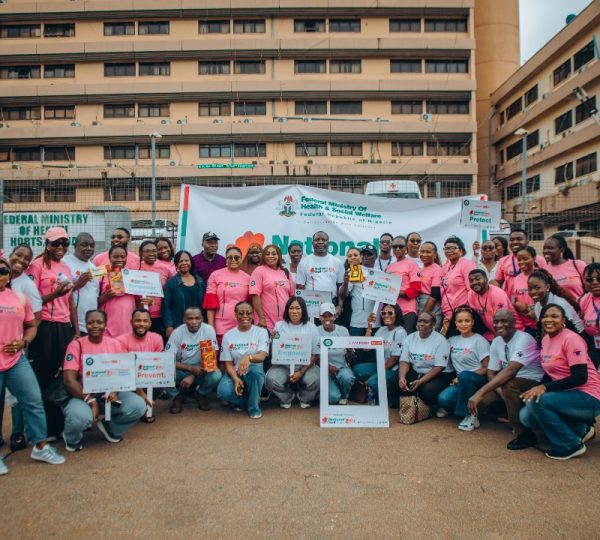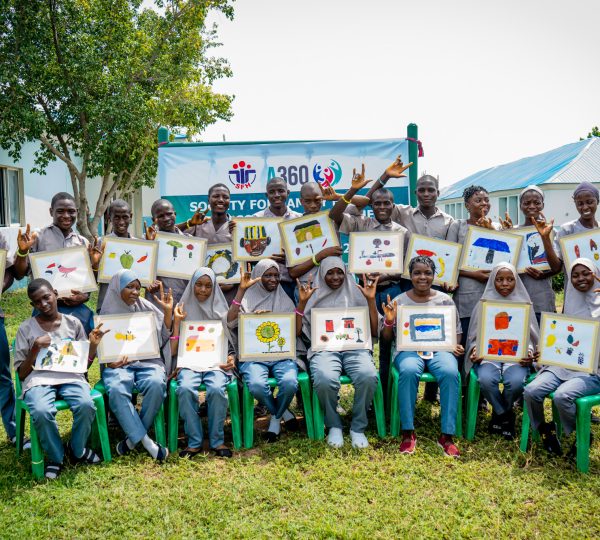ICHSSA 3 VILLAGE SAVINGS AND LOANS ASSOCIATION (VSLA) BOOST THE GROUNDNUT OIL PRODUCTION OF A REDUNDANT MILL IN BIRNIN KUDU OF JIGAWA STATE
by Goyit Samson Stephen, Boniface Biliyock, Felicia Mairiga, Innocent Pius, Caleb E. Odonye, Jeremiah Bassey, Sheba David, Saudi Shehu, Brenda Dalong & Halima Nuhu Dikko
The Integrated Child Health and Social Services Award (ICHSSA-3) project, a USAID-funded project led by the Society for Family Health in consortium partnership with Save the Children International and American International Health Alliance has been implementing the Orphans and Vulnerable Children in Jigawa since November 2022. In its quest to mitigate the impact of HIV amongst most vulnerable children in the state introduced the concept of Village Savings and Loan Association (VSLA) to caregivers of its beneficiaries (Household Affected or Infected by HIV, HIV Exposed infants, Survivors of Violence, Children of Key Population, Children of PLHIV, adolescents at risk of been infected by HIV and people living with disabilities).
The concept of the VSLA seeks to increase the capacities of households to manage their financial resources and withstand shocks to their livelihoods by providing access to basic financial services such as savings, credit, and insurance.
VSLA is a type of microfinance that is managed by communities which provide communities with access to savings, credit, and insurance services. They meet on a weekly basis to deposit their savings. After four to Six weeks of saving, members can take credit of up to three times the value of their savings, depending on the amount of money available from the savings of all the members. Members then repay the association within (10,000 four weeks, above 10,000 6 to 8 weeks), with an interest based on a rate agreed by members of the VSLA (usually very minimal).
“TAIMAKON KAI DA KAI DA RIKE AMANA” VSLA was formed with the interest of empowering caregivers and other women in the community who are indigent to cater for their family’s immediate needs. The United States African Development Foundation (USADF) had donated a groundnut processing factory to Kangime Yamma Community of Birnin Kudu, LGA through the Diamond Development Initiatives, which processes groundnut into oil and chips however the factory ran aground three years ago as no form of production had taken place. Taimakon Kai da kai da rike Amana used the factory as the venue of their VSLA meetings. Members of the VSLA thought to themselves to revitalize the moribund groundnut processing factory, therefore the money they saved in the VSLA was used to commence production of groundnut oil and groundnut chips.
Production stopped due to inadequate power and constant power outages or interruptions in power damaged products been processed.
On discovering this, ICHSSA 3 Jigawa clustered its beneficiaries with the other women working in the factory and started up two VSLA groups. The groups were committed in their contributions and with the support of community case managers monitoring and supporting the groups they were able to save money and had their first cash out in the month of February 2024 after which 5 clusters of 10 persons each contributing N5,000 was formed. This enabled them to buy groundnuts for local production. After the purchase of groundnut, the raw materials, the VSLA started production of groundnut oil which they supply to some of the biggest malls in Jigawa State, such as SAHAD STORES and HASSINAH. After extracting the groundnut oil from the peanut butter, it is used to make peanut chips as additional source of income as it is highly consumed in the North.
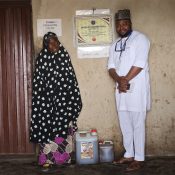
This has greatly impacted on their lives and that of their families, as they are able to provide meals in their respective households, children are able to go back to school and transport fair to the hospitals for drug pick up and other clinical appointments.
This strategic intervention has led to so many members of the community clamoring for a replication of this concept. ICHSSA 3 is committed to ensuring it reaches the nooks and crannies of all our communities, touching lives and providing services to humanity empowering households to overcome challenges of food, education and other means of livelihood.

